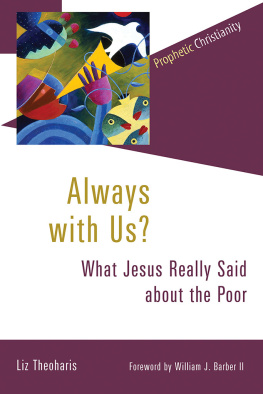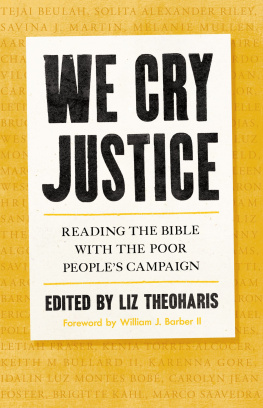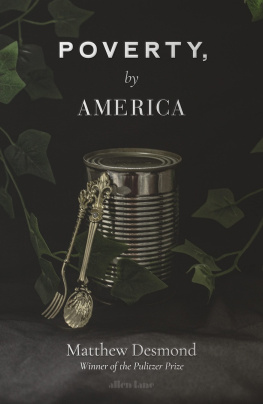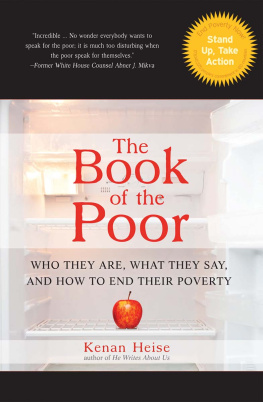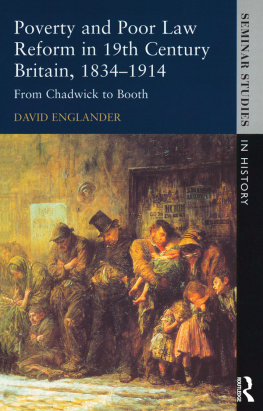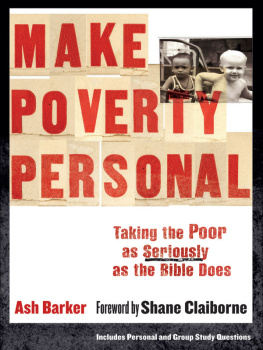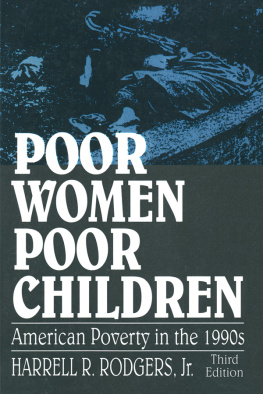PROPHETIC CHRISTIANITY
Series Editors
Bruce Ellis Benson
Malinda Elizabeth Berry
Peter Goodwin Heltzel
The PROPHETIC CHRISTIANITY series explores the complex relationship between Christian doctrine and contemporary life. Deeply rooted in the Christian tradition yet taking postmodern and postcolonial perspectives seriously, series authors navigate difference and dialogue constructively about divisive and urgent issues of the early twenty-first century. The books in the series are sensitive to historical contexts, marked by philosophical precision, and relevant to contemporary problems. Embracing shalom justice, series authors seek to bear witness to Gods gracious activity of building beloved community.
PUBLISHED
Bruce Ellis Benson, Malinda Elizabeth Berry, and Peter Goodwin Heltzel, eds., Prophetic Evangelicals: Envisioning a Just and Peaceable Kingdom (2012)
Jennifer Harvey, Dear White Christians: For Those Still Longing for Racial Reconciliation (2014)
Peter Goodwin Heltzel, Resurrection City: A Theology of Improvisation (2012)
Johnny Bernard Hill, Prophetic Rage: A Postcolonial Theology of Liberation (2013)
Liz Theoharis, Always with Us? What Jesus Really Said about the Poor (2017)
Randy S. Woodley, Shalom and the Community of Creation: An Indigenous Vision (2012)
Always with Us?
What Jesus Really Said about the Poor
Liz Theoharis
WILLIAM B. EERDMANS PUBLISHING COMPANY
GRAND RAPIDS, MICHIGAN
Wm. B. Eerdmans Publishing Co.
2140 Oak Industrial Drive N.E., Grand Rapids, Michigan 49505
www.eerdmans.com
2017 Liz Theoharis
All rights reserved
Published 2017
23 22 21 20 19 18 171 2 3 4 5 6 7
ISBN 978-0-8028-7502-0
eISBN 978-1-4674-4713-3
Library of Congress Cataloging-in-Publication Data
Names: Theoharis, Liz, author.
Title: Always with us? : what Jesus really said about the poor / Liz Theoharis.
Description: Grand Rapids : Eerdmans Publishing Co., 2017. | Series: Prophetic Christianity | Includes bibliographical references and index.
Identifiers: LCCN 2016059245 | ISBN 9780802875020 (pbk. : alk. paper)
Subjects: LCSH: PovertyReligious aspectsChristianity. | Church work with the poor.
Classification: LCC BV4647.P6 T44 2017 | DDC 261.8/325dc23
LC record available at https://lccn.loc.gov/2016059245
All biblical translations follow the New International Version unless otherwise noted.
To the millions of Gods children, those known and unknown, who are buried in potters fields, to those on whose shoulders we stand, and to those who refuse to rest until all poverty is ended for everyone.
Contents
This past year Dr. Theoharis and I traveled to twenty-two states on a Moral Revival Tour, alongside Sister Simone Campbell from Nuns on the Bus, the Rev. Dr. Traci Blackmon from Ferguson, Missouri, and the Rev. Dr. James Forbes, pastor emeritus of Riverside Church in New York. We connected with clergy and impacted people who have been denied Medicaid, lack adequate education, earn too little and work too much, and struggle for their and their familys survival on a daily basis. We met some of the over 15 million children who live in poverty And we preached too often about the churchs deafening silence on poverty.
Poverty is a scandal, says Pope Francis, in a world of so much wealth. I come from an area of the United States where the scandal is not a reality show but reality itself. Im from the SouthNorth Carolina, to be exact. This is a part of the country some call the Bible Belt. Specifically, Im from the first congressional district, one of the poorest districts in the country, that is also the home to the Black Belt, an area of the American South that has rich black soil ideal for growing cotton and has become known for the large concentration of African Americans living in the area. This district includes the largest number of counties in North Carolina in which the population is more than half African American. Here, poor blacks and whites live together, but very few think biblically and theologically together.
In my state alone, more than 1.9 million people are poor, including 700,000 children. One out of five North Carolinians live below the poverty line. North Carolina is one of the 12 poorest states in the country; 10 of which are in the south. Politico says 95 of the 100 poorest districts are in so-called red political states, where the politicians most averse to policies that flow out of the war on poverty are routinely elected into office. These same areas claim great allegiance to Christianity. So here is the question: What theology is being preached in these highly religious sections of the country that allows persons to claim such loyalty to the gospel of Christ but then elect persons so averse to policies that would help the poor? As a preacher, I believe we must ask this question, holding the Bible and cross in one hand and the newspaper and history book in the other.
It is within the complicated framework of this question that I think Dr. Theohariss book and willingness to give attention to the subject of poverty is so important and relevant. In 2016, we saw an election where more than 80% of so-called white evangelicals (though I have deep theological problems with the phrase white evangelicals) voted for a presidential candidate super-billionaire who openly attacked immigrants and said the minimum wage was too high (even though economists note the minimum wage would be $22 an hour rather than $7.25 if it had kept pace with inflation). He was their choice for a president who would be a champion for the destitute and working poor.
This represents to many a strange theology and confusing political ethic, which is why Dr. Theohariss book is so needed now. In my travels with Dr. Theoharis across the country, she has taught that there is a biblical mandate to end poverty. But it seems that some believe in a twofold commandment. First, the poor you will always have with you is a static reality sanctioned by God. The second is like unto the firstif you want to help the poor a little bit, empower the rich.
Dr. Theoharis focuses this book on Jesuss statement that the poor you will always have with you (Matt 26:11). I want to examine briefly another key biblical text on poverty. In his first sermon in Luke 4, Jesus said,
The Spirit of the Lord is on me, because he has anointed me to proclaim good news to the poor. He has sent me to proclaim freedom for the prisoners and recovery of sight for the blind, to set the oppressed free, to proclaim the year of the Lords favor. (Luke 4:18-19)
This statement, from the beginning of Jesuss ministry, places the poor at center stage. Jesus quotes from the Old Testament prophets (here Isaiah), who centuries before rose to the forefront of the spiritual life as they spoke out against injustice in ancient Israel. Luke identifies Jesus as Gods anointed one whose vocation it is to engage in the work of liberation of the poor, blind, captive, and oppressed.
The Greek word for poor in Luke 4:18 is ptochos, the same word that appears in Matt 26:11. The poor are all those who have to endure acts of violence and acts of injustice without being able to defend themselves. In light of this meaning, Jesuss inaugural message in Lukes Gospel is a major affront to Roman society. Philip Esler comments helpfully, In light of the stratification which characterized Hellenistic society, how extraordinary it must have sounded to an audience in a Greco-Roman city for the Lucan Jesus to begin his public ministry by specifying beggars and a number of other groups at the very bottom of the social register as the primary recipients of the gospel. Such a perspective entailed a radical upheaval in the prevailing realities.

